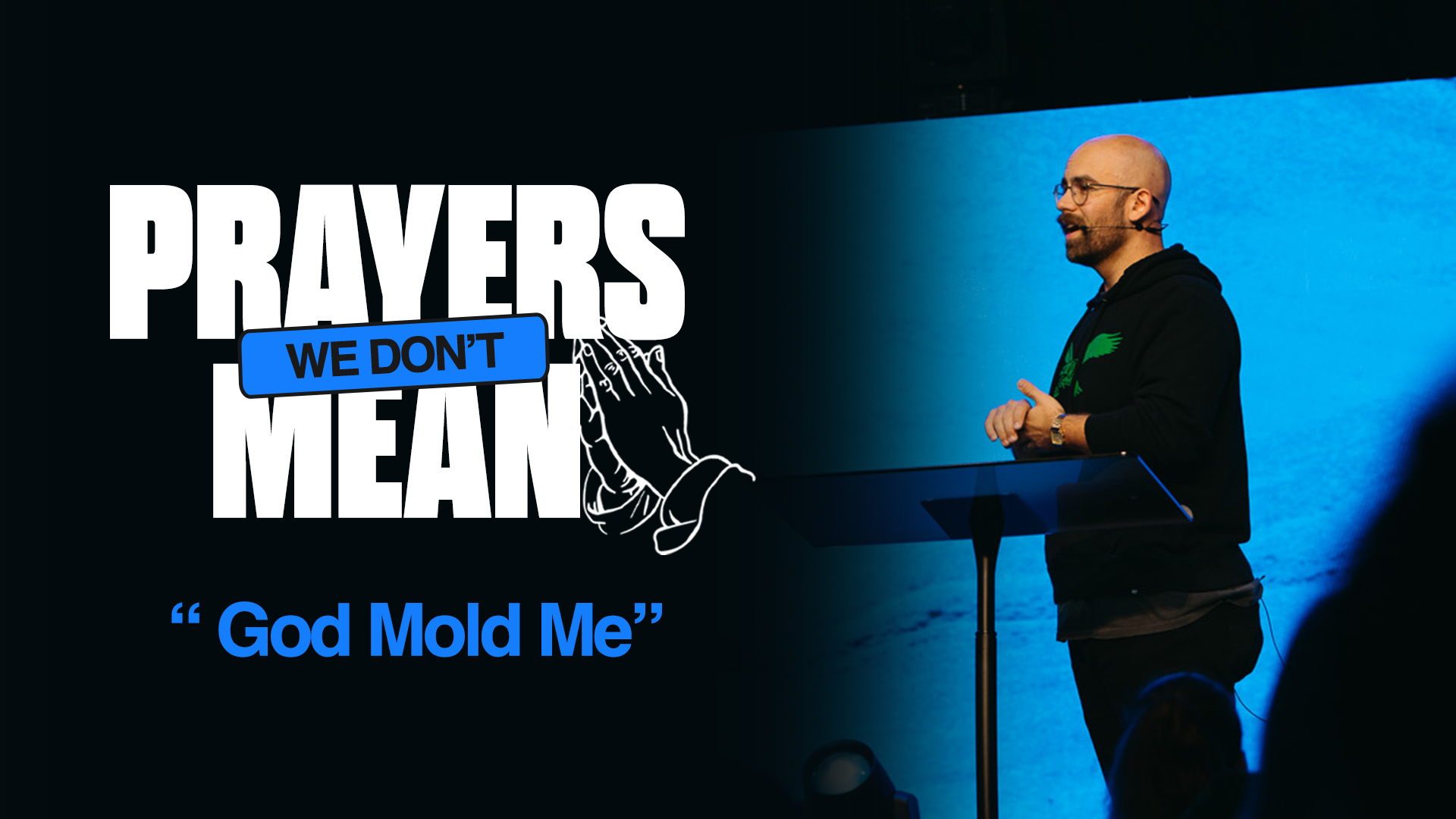
Prayers We Don’t Mean | Week 3
“God Mold Me”
James 5:13-16 – 13 Is anyone among you in trouble? Let them pray. Is anyone happy? Let them sing songs of praise. 14 Is anyone among you sick? Let them call the elders of the church to pray over them and anoint them with oil in the name of the Lord. 15 And the prayer offered in faith will make the sick person well; the Lord will raise them up. If they have sinned, they will be forgiven. 16 Therefore confess your sins to each other and pray for each other so that you may be healed. The prayer of a righteous person is powerful and effective.
2 Corinthians 5:17 – 17 Therefore, if anyone is in Christ, the new creation has come: The old has gone, the new is here!
Isaiah 64:8 – 8 Yet you, Lord, are our Father. We are the clay, you are the potter; we are all the work of your hand.
4 STEPS…
STEP 1 – The clay gets pressed
Pressing creates Consistency
STEP 2 – The clay gets stretched
2 Corinthians 1:8-10 – 8 We do not want you to be uninformed, brothers and sisters,[a] about the troubles we experienced in the province of Asia. We were under great pressure, far beyond our ability to endure, so that we despaired of life itself. 9 Indeed, we felt we had received the sentence of death. But this happened that we might not rely on ourselves but on God, who raises the dead. 10 He has delivered us from such a deadly peril, and he will deliver us again. On him we have set our hope that he will continue to deliver us
Stretching creates Capacity
STEP 3 – The clay gets trimmed
Acts 9:1-5 – 1 Meanwhile, Saul was still breathing out murderous threats against the Lord’s disciples. He went to the high priest 2 and asked him for letters to the synagogues in Damascus, so that if he found any there who belonged to the Way, whether men or women, he might take them as prisoners to Jerusalem.
3 As he neared Damascus on his journey, suddenly a light from heaven flashed around him. 4 He fell to the ground and heard a voice say to him, “Saul, Saul, why do you persecute me?” 5 “Who are you, Lord?” Saul asked. “I am Jesus, whom you are persecuting,” he replied.
Acts 9:6-9 – 6 “Now get up and go into the city, and you will be told what you must do.” 7 The men traveling with Saul stood there speechless; they heard the sound but did not see anyone. 8 Saul got up from the ground, but when he opened his eyes he could see nothing. So they led him by the hand into Damascus. 9 For three days he was blind, and did not eat or drink anything.
Trimming creates Commitment
STEP 4 – The clay gets fired
Acts 9: 20-21 – 20 At once he began to preach in the synagogues that Jesus is the Son of God. 21 All those who heard him were astonished and asked, “Isn’t he the man who raised havoc in Jerusalem among those who call on this name? And hasn’t he come here to take them as prisoners to the chief priests?”
Creating CONSISTENCY is unpredictable
Creating CAPACITY & COMMITMENT is uncomfortable
Being COMPLETE is undeniable
Key Points:
- Summarize the main points or key messages of the sermon.
- Highlight any memorable quotes or phrases from the sermon.
Scriptural Foundation:
- Discuss the Bible passage(s) that were the basis of the sermon.
- Explore the context and significance of the chosen scripture.
Personal Reflection:
- Share your personal thoughts and feelings about the sermon.
- How did the sermon impact you? What resonated with you?
- Were there any moments of conviction, inspiration, or clarity?
Discussion Questions:
List a set of open-ended questions to facilitate discussion. These questions can help attendees engage with the sermon’s content on a deeper level.
Example questions:
1. What do you think the main message or takeaway was from the sermon?
2. How does the scripture relate to the sermon’s message?
3. Were there any practical applications or actionable insights that stood out to you?
4. Did the sermon challenge any of your beliefs or perspectives?
5. How can we apply the sermon’s teachings in our daily lives?
Group Sharing:
- Encourage participants to share their thoughts, questions, or personal experiences related to the sermon.
- Create an open and respectful environment for discussion.
Additional Resources:
- Provide information about any recommended books, articles, or further readings related to the sermon’s topic.
- Mention upcoming events or opportunities for Group members to explore the sermon’s theme further.
Conclusion:
- Summarize the key takeaways from the discussion.
- Emphasize the importance of applying the sermon’s teachings in daily life.
- Announce any follow-up actions or future discussions related to the sermon.
Closing Prayer:
- Take the time to ask members of the Group if they have any prayer requests.
- Conclude the discussion with a brief prayer, asking for guidance and wisdom in applying the sermon’s message to be on mission.